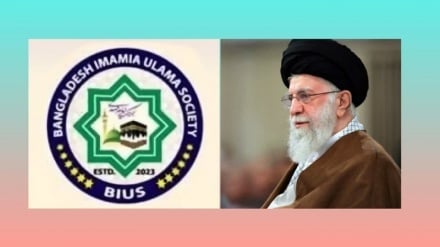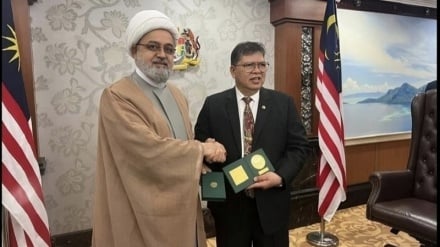Rohingya refugees need rights, not restrictions
Some high-level officials of the Bangladeshi government have recently expressed concern that the Rohingya refugees residing in their country represent a security threat to Bangladesh and the wider region. Under this premise, they have implemented a series of restrictions on the Rohingya communities in the refugee camps. But there no facts to back up their claim.
Rohingya believe the restrictions have been put in place mostly to try to persuade them to go back to Myanmar before adequate safety measures are in place there.
Here we present you an interesting article which appeared on the Asia Times website, titled, “Rohingya refugees need rights, not restrictions”. This article has been written by Khin Maung. The author is the coordinator of the Free Rohingya Coalition and founder and executive director of the Rohingya Youth Association. Please stay tuned.
Historically Rohingya have not been the perpetrators, but rather the victims of persecution and genocide. In order to rebuild positive and safe communities, they need access to their rights – not to be treated as criminals.
Syed Muazzem Ali, Bangladesh’s high commissioner to India, addressing a conference on “Tackling Insurgent Ideologies,” stated that the Rohingya crisis could create a threat to peace and security in region and pressed for its early resolution through the repatriation of refugees to their home country. He said the Rohingya people could become an easy target for radicalization, so the sooner they are settled back in their homes in Myanmar, the better.
The fact is, they have come from the killing fields to escape persecution, not to settle in Bangladesh, which is not their country. They are reliant on others to secure sustainable solutions for them in Myanmar in order to return. They are waiting until that time.
Recently Bangladeshi Prime Minister Sheikh Hasina underlined the need for the quick repatriation of displaced Rohingya to their country of origin in Myanmar. She said, “It will be better for Bangladesh if they go back as early as possible.” While her statement is correct, the situation and conditions do not allow them to repatriate yet, as there are no guarantees for their security, their safety and their citizenship rights.
Security is another major concern for those living in the camps. The Bangladeshi government has said that it plans to place fences around the camps, under the premise that this will help to protect them. Rohingya are doubtful about the effectiveness of this measure. They feel the fences will not make them safer, but rather will create further restrictions on their lives.
Bangladesh is not their country, and they are not citizens there. Nonetheless, they are entitled to basic human rights. They need access to education, security and health, like all human beings. These things also help them to build supportive communities that are less vulnerable and less likely to resort to crime.
The Internet has been blocked since September and Rohingya face the confiscation of their mobile phones by security personnel. Blocking Internet services in the camps, as though they are a threat in Bangladesh, has many negative consequences. The communication blackout will isolate them from their families in Myanmar. And if they face security threats in the camps, they are unable to inform the police.
In order to stop criminal activity, they need a greater presence of security forces and law enforcement inside the camps and continued access to communications. Criminal activities such as kidnapping and trafficking will increase day by day if they cannot inform the authorities in time. They need to be protected as survivors of genocide, not vilified as criminals.
Recently, the Rohingyas have had other new restrictions imposed on them. It is not only the shutdown of mobile-phone services in the camps, but also restrictions on working voluntarily for non-governmental organizations (NGOs) providing services to their own communities. There are increasing restrictions on their access to basic education and freedom of movement within the refugee-camp areas and to the Cox’s Bazaar area to access medical treatment and training opportunities. In short, their human rights are increasingly being curtailed and they are being treated as though they are all criminals.
On August 25 every year, Rohingya commemorate the day on which the Myanmar military resumed its genocidal campaign that drove around 700,000 of them into Bangladesh in 2017. This year they came together to remember those who lost their lives as a result of the genocide. The gathering of Rohingya people was misunderstood as a threat by the local community. A lot of hate speech spread in Bangladesh and tensions increased between Rohingya and the local communities.
The local media were implicated. No measures were taken to prevent hate speech. Instead, further restrictions were imposed on them and their rights were further limited. Also, the NGOs that provided funds for them to commemorate the Rohingya victims of Myanmar’s genocide faced restrictions. As a community rebuilding after the devastating events of genocide, they have a need to remember the victims and mark the atrocities perpetrated against them. Restrictions will not curtail that inherent need in the years to come.
Rohingyas can never forget the humanity Bangladesh showed in time of need in 2017, when the borders were opened to them as they fled for their lives. Their gratitude to Bangladesh is also reflected on as part of their commemoration events. They are not a threat to their Bangladeshi brothers and sisters. Please allow them to continue to live in dignity in your country, until safety is restored in Rakhine, and conditions allow them to return to their country and to their homes.
SS


